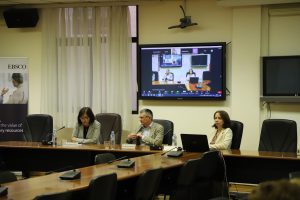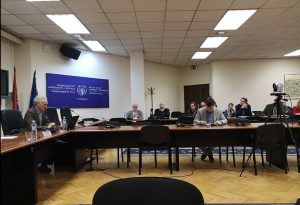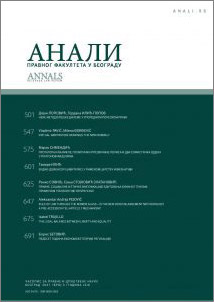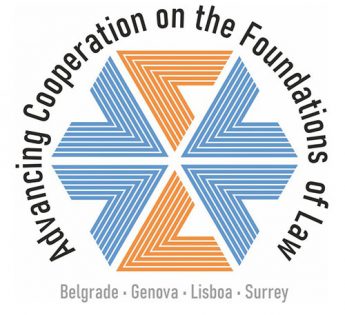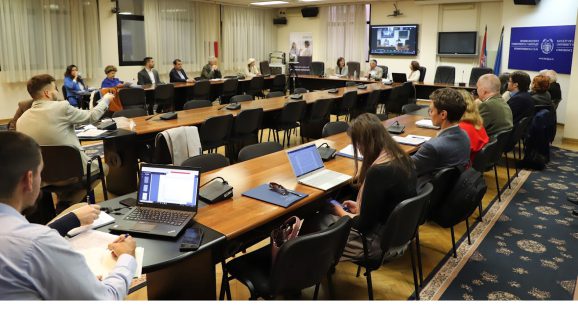
International conference “(Un)fit to rule” held
Мarking the 700th anniversary of the coronation of King Stefan Uroš the Third – Stefan Dečanski, despite his blindness as a seemingly insurmountable hindrance to the performance of royal duties, the University of Belgrade Faculty of Law organized the international conference „(Un)fit to rule: themes of acceptance and rejection of rulers throughout history.ˮ The conference was held from 26-28. October 2022.
Presenters and participants had the opportunity to access this event in two ways: live, in the conference hall of the Faculty of Law, or online, via the Zoom platform. The language of the conference was English.
The conference was opened by Emeritus Prof. Dr Sima Avramović, president of the organizing committee of the conference, Prof. Dr Zoran Mirković, Dean of the Faculty of Law, and Prof. Dr Milena Polojac, Head of the Department of Legal History at the University of Belgrade Faculty of Law.
Each day, the participants were able to attend three sessions, each of which concerned a phenomenon within the broader theme of ruler’s abilities, as well as two keynote lectures by renowned experts. To that extent, on the first day, there were the presentations Emeritus Prof. Dr John Baines – “Contesting a “divine” king’s status: a perspective from ancient Egypt” and Prof. Dr Athina A. Dimopoulou – “Eupatridae vs. Kakopatrida in Alcaeus’ poetry: pedigree and bodily (im)perfection in the power struggle in archaic Lesbos.ˮ
On the second day, Emeritus Prof. Dr E. William Monter spoke on the topic “How women became fit to rule”, while Prof. Dr. Peter Schreiner and Prof. Dr. Isabel Grimm-Stadelmann, titled their contribution “Medicine in the service of political calculation in Byzantium”.
The last day of the conference was reserved for lectures by emerita prof. Dr. Kalliopi Bourdara – “Crimen laesae majestatis: fit or unfit to rule?” and prof. Dr. Ioannis Papadopoulos – “Biblical hermeneutics of disruption: The dissonance between political power and divine grace in the order of succession as a moral warning to rulers.”
The topics covered by the presenters concerned the most diverse issues of rulership, ability and legitimacy, as well as the legal prerequisites for. For example: physical and psychological defects as (dis)qualifications of rulers, women in power, religious differences and succession, the issue of legitimizing power and the elementary values of the (ideal) ruler…
During nine sessions, 36 participants from 14 countries presented their works, three of which were from our faculty: Prof. Dr Miloš Stanković, Assist. Prof. Dr Nina Kršljanin, as well as Đorđe Stepić, MA.


